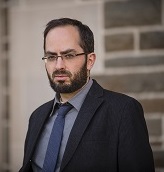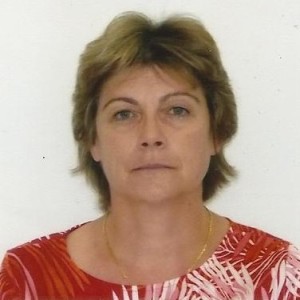In 2014, ICNC launched its new curriculum fellowship to support development of courses on nonviolent conflict and promote teaching in the growing field of civil resistance studies. This year, ICNC has selected six fellows to help them introduce or expand existing curricular and educational activities in the field of civil resistance at their universities and colleges. Our 2015 curriculum fellows teach in the United States and Canada.
2015 Fellows include:
 Jeneve Brooks is an Assistant Professor of Sociology at Troy University – Dothan Campus in Dothan, AL. Her research examines how to build more peaceful and inclusive societies. Specifically, her published work focuses on protest music, social movements, political psychology, mass media/popular culture, emotions, race relations, and much more. Jeneve has contributed to Music Sociology: An Introduction to the Role of Music in Social Life (Horsfall, Meij, and Probstfield 2013) and has written journal articles for Theory in Action, Music and Arts in Action and Race, Gender, and Class. Jeneve is committed to bridging the divide between races and cultures and organized a Dialogue on Race Relations event in Dothan, AL which brought together law enforcement, politicians, clergy, and activists to respond to the growing concerns over the racial divide, both nationally and locally. In addition, her commitment to social justice pedagogy was featured on The Teaching Research and Innovations’ Library for Sociology’s website for a curriculum she developed entitled “Exploring Home Ownership, Residential Segregation, and the Growing Racial Wealth Gap.” Jeneve is also the co-organizer for the regional Wiregrass Blues Fest and is involved in a variety of progressive movements ranging from peace movement mobilization to prison reform.
Jeneve Brooks is an Assistant Professor of Sociology at Troy University – Dothan Campus in Dothan, AL. Her research examines how to build more peaceful and inclusive societies. Specifically, her published work focuses on protest music, social movements, political psychology, mass media/popular culture, emotions, race relations, and much more. Jeneve has contributed to Music Sociology: An Introduction to the Role of Music in Social Life (Horsfall, Meij, and Probstfield 2013) and has written journal articles for Theory in Action, Music and Arts in Action and Race, Gender, and Class. Jeneve is committed to bridging the divide between races and cultures and organized a Dialogue on Race Relations event in Dothan, AL which brought together law enforcement, politicians, clergy, and activists to respond to the growing concerns over the racial divide, both nationally and locally. In addition, her commitment to social justice pedagogy was featured on The Teaching Research and Innovations’ Library for Sociology’s website for a curriculum she developed entitled “Exploring Home Ownership, Residential Segregation, and the Growing Racial Wealth Gap.” Jeneve is also the co-organizer for the regional Wiregrass Blues Fest and is involved in a variety of progressive movements ranging from peace movement mobilization to prison reform.
Course title: “Social Change” (Fall 2015)
Location: Troy University, Dothan, Ala.
Abstract: This course emphasizes civil resistance and social movements and the vital role of music in progressive social movements. Specifically, the course introduces students to the strategy of non-violent civil resistance and how it has been particularly effective in eliciting long-term social change. The course focuses on several case studies of civil resistance movements in various countries and highlights diverse readings offered by the International Center for Nonviolent Conflict’s (ICNC), including texts by Maciej Bartkowki, Peter Ackerman, Jack Duvall Erica Chenoweth, Maria Stephan, and Robert Helvey. The course also highlights music’s significant role in progressive social change efforts, utilizing Dorian Lynskey’s comprehensive 33 Revolutions Per Minute: A History of Protest Songs from Billie Holiday to Green Day. In addition, the course incorporates ICNC’s Universal E-Classroom. The focus on nonviolent civil resistance is particularly useful and enlightening for students living in the south. given the strong and pervasive military culture in Alabama. These expanded resources available through the ICNC website enable students to more deeply understand that nonviolent civil resistance strategies are often more effective in bringing about lasting social change than what can be achieved through violent means.
 Jacob Mundy is an Assistant Professor of Peace and Conflict Studies at Colgate University where he also contributes to African and Middle Eastern studies. His research explores issues of civil conflict and foreign intervention in northern Africa. He has conducted fieldwork in Western Sahara, Morocco, Algeria, and Libya. In addition to several journal articles and other publications, is books include Western Sahara: War, Nationalism, and Conflict Irresolution, The Postconflict Environment, and Imaginative Geographies of Algerian Violence. His research on civil resistance includes an award-winning article coauthored with Maria Stephan and a book chapter coauthored with Stephen Zunes, recently published in the collection Civil Resistance and Conflict Transformation: Transitions from Armed to Nonviolent Struggle.
Jacob Mundy is an Assistant Professor of Peace and Conflict Studies at Colgate University where he also contributes to African and Middle Eastern studies. His research explores issues of civil conflict and foreign intervention in northern Africa. He has conducted fieldwork in Western Sahara, Morocco, Algeria, and Libya. In addition to several journal articles and other publications, is books include Western Sahara: War, Nationalism, and Conflict Irresolution, The Postconflict Environment, and Imaginative Geographies of Algerian Violence. His research on civil resistance includes an award-winning article coauthored with Maria Stephan and a book chapter coauthored with Stephen Zunes, recently published in the collection Civil Resistance and Conflict Transformation: Transitions from Armed to Nonviolent Struggle.
Course title: Strategic Nonviolent Conflict: Theory, Practice, & Critique (Fall 2015)
Location: Colgate University, Hamilton, New York
Abstract: One of the most profound developments to emerge in field of the peace and conflict studies over the previous century is the rise of strategic nonviolent conflict as the most effective form of waging mass civil resistance. Though the results of the Arab Spring have led to some irrational cynicism regarding the efficacy of waging strategic nonviolent conflict as a tool of reform, revolution, or independence, the long-term trends speak for themselves. Social movements that strategically adopt nonviolent tactics are far more likely to succeed over movements that strategically opt for violent methods. Nonviolent movements are also more likely to achieve durable democracies than forms of violent revolutionary change. The objective of this course is to introduce students to these trends and to help them develop the intellectual resources to understand them. To meet this objective, the course has these learning goals: understand the basic concepts and theories of social movements; explore the global geography of strategic nonviolent conflict in the modern period, the theories of success and failure outlined at the beginning of the course.
 Mahbub Hasan is a passionate educator and social worker. He is a Faculty member (part time) at Centennial College and teaches courses on Power and Social Movements, Social Policy and Community Development. He also works with the Licensing International Engineers into the Profession (LIEP) program of University of Toronto. Dr. Hasan is a lifelong learner. He has an MA degree in Modern History, M.Phil in Ethno-history, and Ph.D in Anthropology from University of Dhaka. He has certificates in Project Management and Communications from University of Toronto. He has received training on Social Work from Ryerson University.
Mahbub Hasan is a passionate educator and social worker. He is a Faculty member (part time) at Centennial College and teaches courses on Power and Social Movements, Social Policy and Community Development. He also works with the Licensing International Engineers into the Profession (LIEP) program of University of Toronto. Dr. Hasan is a lifelong learner. He has an MA degree in Modern History, M.Phil in Ethno-history, and Ph.D in Anthropology from University of Dhaka. He has certificates in Project Management and Communications from University of Toronto. He has received training on Social Work from Ryerson University.
Dr. Hasan’s research and training interests lie in human rights, good governance, livelihood, ethnicity and civil resistance. He conducted his Ph.D research on the Well-being and Entitlement of People in the Local Government System of Bangladesh. He authored a book titled Livelihood of the Santals: Contemporary Change Dynamics (Dhaka, 2006). He co-authored a book on community mobilization through grassroots journalism (Dhaka, 2010). He also wrote articles on the language movement of 1952 and independence struggle of 1971- two major civil resistances in Bangladesh History. As an international development worker, Hasan worked in North America, Europe and Asia through Council of Agencies Serving South Asians, ActionAid, VSO, CIDA, and worked with poor and marginalized communities to fight against poverty and injustice during 1998-2013.
Course title: Power and Social Movements (Fall 2015)
Location: Centennial College, Toronto, Ontario, Canada
Abstract: This is a complementary curriculum unit with the existing “Power and Social Movements” course of the Social Service Worker Program (two year post-secondary diploma) at Centennial College. The course focuses on the rise of social movements in challenging the inequitable distribution of power. It discusses past major civil rights movements, and examines strategies and actions of the present social movements. The present curriculum unit is aiming to further enhance the knowledge of students on social movements and civil resistance, and its importance to secure human rights, promote democracy and good governance. Students will learn the principles, strategies and tactics of the nonviolent civil resistance, and examine why it works in most of the cases. The modules emphasise community organizing and mobilisation principles and strategies for creating a social movement/civil resistance. The curriculum unit will develop understanding of community journalism and enhance skills in using social media tools for community mobilization. It will demonstrate how community journalism and social media can promote public awareness, advocacy and create social movements at the grassroots level. The curriculum unit will provide hands on training to the students who will learn to design a campaign, develop a movement action plan, and deliver a campaign effectively within specific time and resources. In this regard, project management processes, tools and techniques will be discussed for effective planning, outreach, community organizing, and mobilization of various stakeholders for a successful nonviolent social movement. Moreover, this curriculum unit will connect students with ICNC resources and it will inspire them to study civil resistance and participate in the social movements.
 Boyka Stefanova is an associate professor in the Department of Political Science and Geography at the University of Texas, San Antonio. She holds a Doctorate in Economics from the University of National and World Economy, Sofia (Bulgaria) and a Ph.D. in Political Science from the University of Delaware (2004). Her research interests focus on political conflict, territoriality and politics in the context of European integration, and democracy in Eastern Europe. Her publications examine a variety of topics in these research areas. Dr. Stefanova has published three books: The War on Terror in Comparative Perspective: US Foreign and Security Policy after 9/11 (co-edited with Mark J. Miller) with Palgrave Macmillan (2007), The Europeanization of Conflict Resolution: Regional Integration and Conflicts in Europe from the 1950s to the 21st century with Manchester University Press (2011), and The European Union Beyond the Crisis: Evolving Governance, Contested Policies, and Disenchanted Publics (editor) with Lexington Books (2014).
Boyka Stefanova is an associate professor in the Department of Political Science and Geography at the University of Texas, San Antonio. She holds a Doctorate in Economics from the University of National and World Economy, Sofia (Bulgaria) and a Ph.D. in Political Science from the University of Delaware (2004). Her research interests focus on political conflict, territoriality and politics in the context of European integration, and democracy in Eastern Europe. Her publications examine a variety of topics in these research areas. Dr. Stefanova has published three books: The War on Terror in Comparative Perspective: US Foreign and Security Policy after 9/11 (co-edited with Mark J. Miller) with Palgrave Macmillan (2007), The Europeanization of Conflict Resolution: Regional Integration and Conflicts in Europe from the 1950s to the 21st century with Manchester University Press (2011), and The European Union Beyond the Crisis: Evolving Governance, Contested Policies, and Disenchanted Publics (editor) with Lexington Books (2014).
Course title: Democracy and World Policy: The Citizens’ Perspective
Location: University of Texas at San Antonio
Abstract: The course in “Democracy and World Politics: The Citizens’ Perspective” studies the contemporary dimensions of mass politics, often described as a process of erosion of public trust in the traditional political institutions, but also as a process of consolidation of new pillars of democracy based on civic action. Civil resistance is a central theme in the course. Developed in five modules, the study of nonviolent struggle explores the rising levels of global discontent and public demands for openness, reform, justice, rights, and good governance. Building on concepts and theories of political behavior, civil society, social capital, new social movements, political protest, and transnationalism, the modules examine nonviolent struggle on the example of citizen initiatives, networks, and coalitions, as well as their strategies and tactics to bring about political change. Course participants explore the local aspect of civic action by studying the successes and failures of nonviolent struggles to end oppression, resolve frozen conflicts, achieve political independence, defend human rights, and restore justice.
 Elizabeth A. Wilson is Assistant Professor of Human Rights Law at the School of Diplomacy and International Relations, Seton Hall University. Her areas of specialization include public international law, international human rights law, transitional justice, international humanitarian law, and the history and theory of human rights. As a lawyer in Washington DC, she was a part of the litigation teams that brought Boumediene v. Bush and Rasul v. Rumsfeld cases eventually to the U.S. Supreme Court. She also helped bring the first habeas cases ever filed on behalf of detainees in Bagram AFB. She is currently writing a book, under contract with Columbia University Press, entitled Be the Change: Writing Gandhi into the History of Human Rights, and has published numerous articles on human rights and national security. Recently, she has published a chapter on the right to association with nonviolent civil resistance movements in the book collection, Is Authoritarianism Staging a Comeback? (Atlantic Council, 2015). In 2012-13, she was Visiting Assistant Professor of Law at Rutgers Law School — Newark. She holds a J.D. from Harvard Law School and a Ph.D. from the University of Pennsylvania in Comparative Literature and Literary Theory. She has been a Fulbright Scholar and a two-year recipient of a DAAD grant, both in Germany, and has done consulting for the American Bar Association Rule of Law Initiative in Jordan. She has appeared on the Nightly News with Chuck Scarborough.
Elizabeth A. Wilson is Assistant Professor of Human Rights Law at the School of Diplomacy and International Relations, Seton Hall University. Her areas of specialization include public international law, international human rights law, transitional justice, international humanitarian law, and the history and theory of human rights. As a lawyer in Washington DC, she was a part of the litigation teams that brought Boumediene v. Bush and Rasul v. Rumsfeld cases eventually to the U.S. Supreme Court. She also helped bring the first habeas cases ever filed on behalf of detainees in Bagram AFB. She is currently writing a book, under contract with Columbia University Press, entitled Be the Change: Writing Gandhi into the History of Human Rights, and has published numerous articles on human rights and national security. Recently, she has published a chapter on the right to association with nonviolent civil resistance movements in the book collection, Is Authoritarianism Staging a Comeback? (Atlantic Council, 2015). In 2012-13, she was Visiting Assistant Professor of Law at Rutgers Law School — Newark. She holds a J.D. from Harvard Law School and a Ph.D. from the University of Pennsylvania in Comparative Literature and Literary Theory. She has been a Fulbright Scholar and a two-year recipient of a DAAD grant, both in Germany, and has done consulting for the American Bar Association Rule of Law Initiative in Jordan. She has appeared on the Nightly News with Chuck Scarborough.
Course title: International Human Rights
Location: Seton Hall University, South Orange, New Jersey
Abstract: This interdisciplinary course will provide an overview of the international legal and institutional system for the protection of human rights, with units on history, philosophy and political theory, social science, civil resistance studies – and law threaded throughout. Students will learn the basic mechanics of international law and of international human rights institutions. We will approach the subject both from an academic perspective and from the point of view of the human rights practitioners (“human rights defenders”), both individuals and groups or movements. In recent years, it has become increasingly clear that civil society organizations (CSO’s) and social movements form important mediators between formal legal human rights norms and their realization in particular social and political contexts. Since the 1970’s, CSO’s have exploded in numbers across the globe, with human rights becoming a lingua franca in the age of globalization. Besides formal legal mechanisms that sprung up after 1948 (“positive law”), human rights also draws its energy from a more intangible “natural law” tradition that has animated social movements and civil resistance, even in the face of absent or weak enforcement mechanisms of positive law. In addition to attending to organized CSO’s, we will also consider “people power” in both contemporary and historical iterations as a human rights practice and think about how to integrate the burgeoning field of nonviolent civil resistance studies into the international legal framework for human rights, with a particular focus on the Responsibility to Protect and the Right to Democracy.